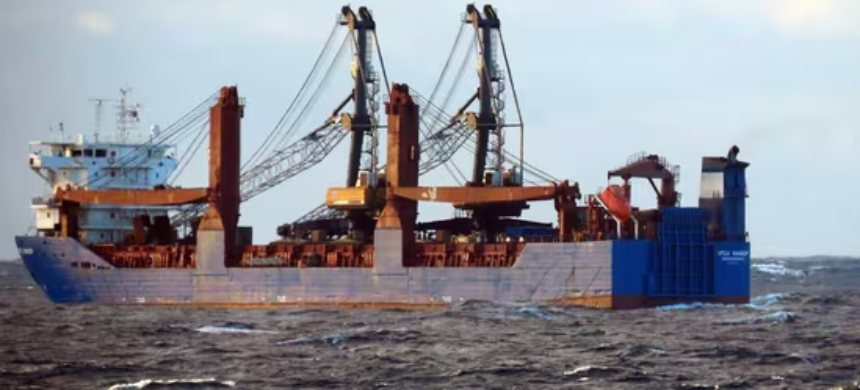Russian Cargo Ship Ursa Major Sinks in Mediterranean Sea, Two Crew Members Missing
A Russian cargo ship named Ursa Major sank overnight in the Mediterranean Sea after an explosion tore through its engine room, leaving two crew members missing, the Russian Foreign Ministry reported on Tuesday.
Details of the Incident
The Ursa Major, built in 2009 and operated by Oboronlogistika, a company affiliated with the Russian Defense Ministry, was en route from St. Petersburg to Vladivostok, carrying two large port cranes and empty containers.
The explosion occurred roughly 57 miles off the coast of Almería, Spain, prompting a distress signal on Monday evening. Spain’s Maritime Rescue Service coordinated a rescue operation involving two vessels and a helicopter, saving 14 out of the 16 crew members, who were later transported to the port of Cartagena.
A Russian warship later arrived at the scene and took over the rescue operation.
Read More: Honor 300 Pro Offers Flagship Chipset and Premium Cameras at an Affordable Price
Cause of the Explosion
The cause of the explosion remains unclear. Russia’s Foreign Ministry and the Russian embassy in Spain are investigating the incident in collaboration with Spanish authorities.
Sanctions and Previous Movements
The Ursa Major and its operator, Oboronlogistika, are under U.S. sanctions due to their connections with Russia’s military. Ship tracking data from LSEG revealed that the vessel departed St. Petersburg on December 11 and had not planned to dock at Tartous, Syria, a frequent destination in the past.
The ship’s final signal was recorded at 2204 GMT on Monday, between Algeria and Spain, before it sank.
Video Footage and Weather Conditions
Unverified video footage released by the Russian news outlet Life.ru showed the ship listing heavily to its starboard side, with its bow submerged lower than usual. Spanish authorities noted bad weather conditions at the time of the incident, which may have exacerbated the situation.
Broader Context
The sinking occurred amidst heightened scrutiny of Russian cargo movements. On Monday, Ukraine’s HUR military intelligence reported a different Russian cargo ship, Sparta, had experienced technical issues off the coast of Portugal before continuing its journey to Syria to allegedly transport military equipment and ammunition following the fall of Bashar al-Assad.
This incident raises further questions about the role of Russian cargo vessels in military operations and their safety protocols, particularly under the shadow of international sanctions.











